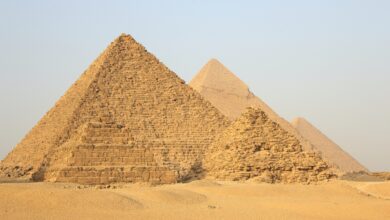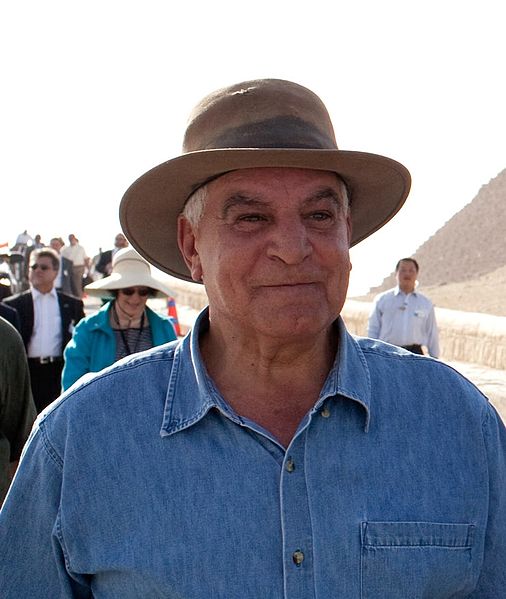Al-Ahram leads with extensive comments from Prime Minister Ahmed Nazif, who spoke yesterday at the opening session of the Fourth National Youth Conference in Luxor. Nazif said the government is studying ways to reform Egypt’s wide-ranging subsidies programs, adding that the current system “favors the rich more than the poor,” Al-Ahram reports.
Nazif also addressed plans to spur development in Sinai, saying that the peninsula has “a special political and strategic status because it is considered Egypt’s gateway to the East.”
On the opinion pages, an brief editorial takes on Nazif’s comments about subsides reforms and ask, “Why not start now?”
The piece praises Nazif’s stance, but worries that the necessary adjustment to the subsides system will move too slowly due to government fears of sparking a controversy by tampering with such a hot-button topic. The main source of delays in the reform, the editorial states, will be “fear of angry public opinion.”
The perpetually camera-ready Chairman of the Supreme Council of Antiquities, Zahi Hawass, appears on the front page of Al-Shorouq, following genetic analysis on Tutankhamun’s 3300-year old mummy, revealing that the world-famous boy king apparently died of malaria.
The paper also offers its own pit-stirring twist on Nazif’s Luxor comments, with a banner headline that shouts: “The government studies raising fuel prices for the rich.”
On its fifth page, Al-Shorouq carries a wonderful tale of the owner of a Cairo restaurant chain who has found a unique and slightly subversive way to jump on the Mohamed ElBaradei presidential bandwagon. For starters, he’s giving all his employees the day off on Friday and encouraging them to go to Cairo airport to greet ElBaradei’s hotly anticipated arrival. But the restaurateur is taking things a step further: He is stamping the cash taken in by his establishments with pro-ElBaradei slogans, like “ElBaradei for president 2001” and “We want a better future…yes to ElBaradei.”
The owner then spends that money, re-circulating it into the city and effectively creating his own low-tech viral marketing campaign.
Al-Dostour, which devoted its first five pages on Wednesday to an overwhelming package of stories and articles about ElBaradei, toned down the excitement a bit today. ElBaradei only makes it into one front page article, on the arrest of several young activities for spray-painting pro-ElBaradei slogans on buildings and bridges.
Inside, the paper speaks with Abdel Rahman Youssef, one of the most high-profile ElBaradei enthusiasts, who details some of the preparations being made to meet him at the airport. Yousef claims that “hundreds of youths” have been specially trained to avoid detection and confrontations in the face of what could be a massive security presence surrounding ElBaradei’s arrival at the airport on Friday afternoon.
Egypt’s newspapers:
Al-Ahram: Daily, state-run, largest distribution in Egypt
Al-Akhbar: Daily, state-run, second to Al-Ahram in institutional size
Al-Gomhorriya: Daily, state-run
Rose el-Youssef: Daily, state-run, close to the National Democratic Party’s Policies Secretariat
Al-Dostour: Daily, privately owned
Al-Shorouq:Daily, privately owned
Al-Wafd: Daily, published by the liberal Wafd Party
Al-Arabi: Weekly, published by the Arab Nasserist party
Youm7: Weekly, privately owned
Sawt el-Umma: Weekly, privately owned



